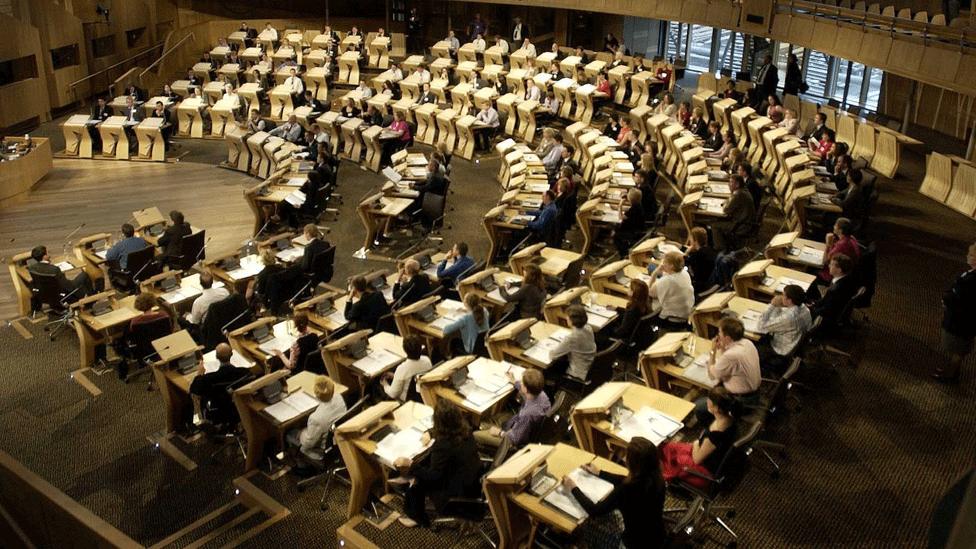Scottish politics: What to look out for
- Published
Almost two dozen MSPs plan not to return to the Scottish Parliament once its fourth session ends in March
Monday 25 January was not just Robert Burns' birthday - it was also a significant date in the countdown to the Scottish Parliament elections as it meant there were just 100 campaigning days left. Here is my guide to some of the key things to look out for in Scottish politics between now and then.

Candidates

The political parties have chosen most of their candidates for May's elections but Labour has still to rank those standing on the regional lists.
Voting is under way and Kezia Dugdale's party will announce the results on Saturday 6 February, external.
Those nearest the top of each list are most likely to get elected. And so, candidates - including serving MSPs - who fail to secure a high enough list place will not be elected.
In the past, Labour returned so many constituency MSPs that it secured relatively few list seats under Holyrood's proportional voting system. But since the SNP landslide in 2011, these top-up lists have become much more important for Labour.

EU Referendum
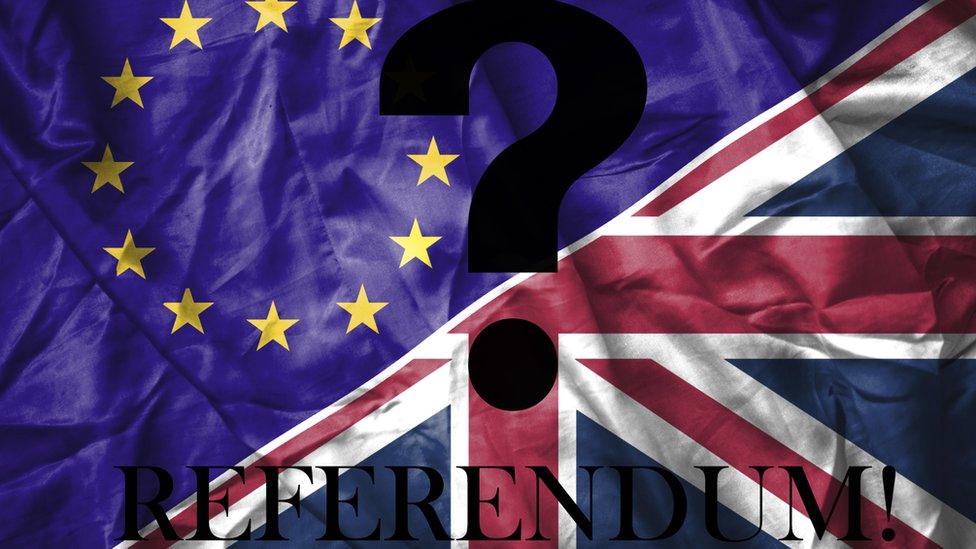
The prime minister David Cameron has ruled out holding the in/out vote on the UK's membership of the EU on the same day as the Holyrood elections.
But it seems increasingly likely that the referendum will be held this year rather than next - perhaps as early as June, as this recent take by my colleague Brian Taylor explains here, with some wider timetabling information set out here.
Last week, Scottish Secretary David Mundell said there was a "strong argument" for June and Foreign Secretary Philip Hammond confirmed a June vote was "certainly possible", external.
Mr Hammond told the BBC: "If we get a deal, a June vote would be a possibility in terms of the timescales of the Referendum Act but that will only be decided once we've got a deal."
The UK government hopes to get that deal when David Cameron next meets other EU leaders on 18 and 19 February. , external
Having said all that, the prime minister reminded us in Davos that his pledge is to hold the referendum before the end of 2017, external.

Fiscal Framework
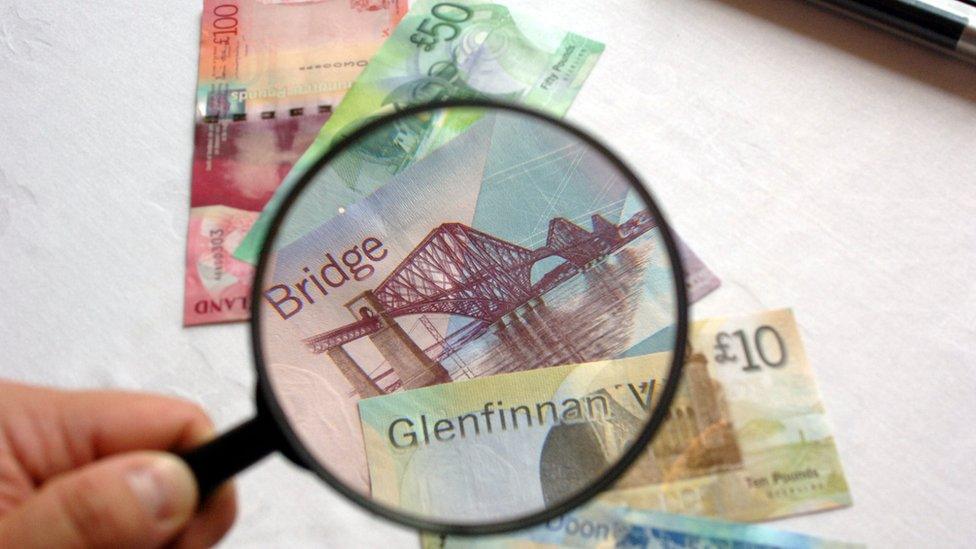
The fiscal framework will set out the financial arrangements that underpin the new tax and welfare powers to be transferred to Holyrood when the Scotland Bill becomes law.
There have already been seven rounds of talks between UK and Scottish ministers and there will be more. First Minister Nicola Sturgeon has anticipated a deal being reached in February.
This process is crucial because the outcome will determine the extent of Holyrood's borrowing powers and the reduction in the Scottish government's block grant from the Treasury when devolved income tax powers are extended.
The Scottish government has threatened to veto the Scotland Bill unless it judges the fiscal framework "fair to Scotland". The UK government has said it must also be fair to taxpayers across the UK.
The Scotland bill is due to reach committee stage in the House of Lords on Tuesday 9 February. You can track the legislation's progress here, external, and it is expected to become law before the Holyrood election.

Scottish Budget

The finance secretary, John Swinney, published the Scottish government's draft budget for 2016/17 in December.
It included local government budget cuts, plans to increase the property transaction tax paid on the purchase of second homes and a decision to keep income tax rates in Scotland the same as those in the rest of the UK.
It has still to be debated, possibly amended and approved by Holyrood in time to take effect from April. Much of this should happen in February.

Local Tax
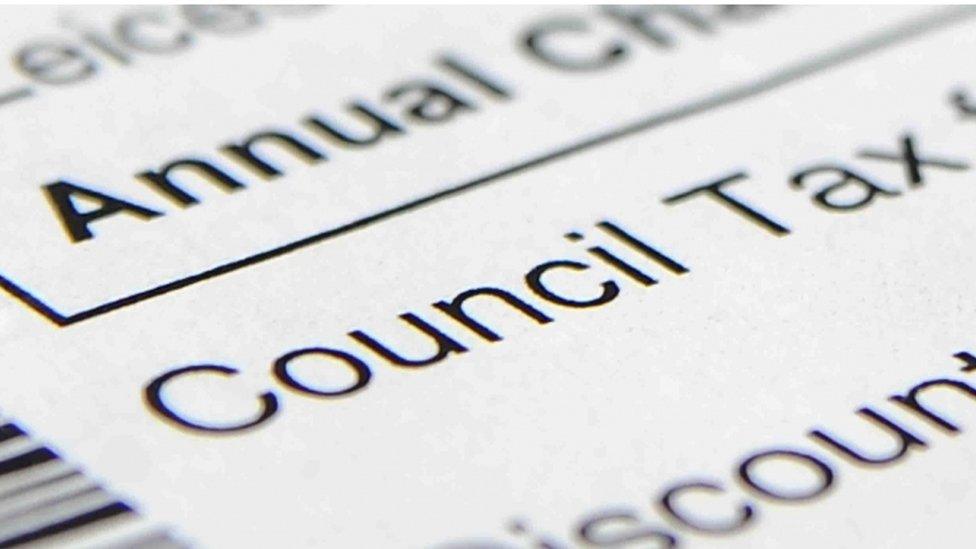
When Mr Swinney delivered his draft budget he promised to set out plans to overhaul local taxation in 2016.
In his statement, he said: "We will set out plans to reform the council tax in a way that will deliver sustainable council finances and greater fairness for local taxpayers.
"I can also announce today that I intend to enter into a consultation with local government about possible future assignation of a proportion of income tax receipts - thereby giving local authorities an incentive to boost economic growth in their areas."
This follows publication of the final report of the Local Tax Commission in December, external.
Expect the SNP to set out their plans in March.
The Conservative Party has also published the findings of its own tax commission - including a review of local taxation.

Spring Conferences
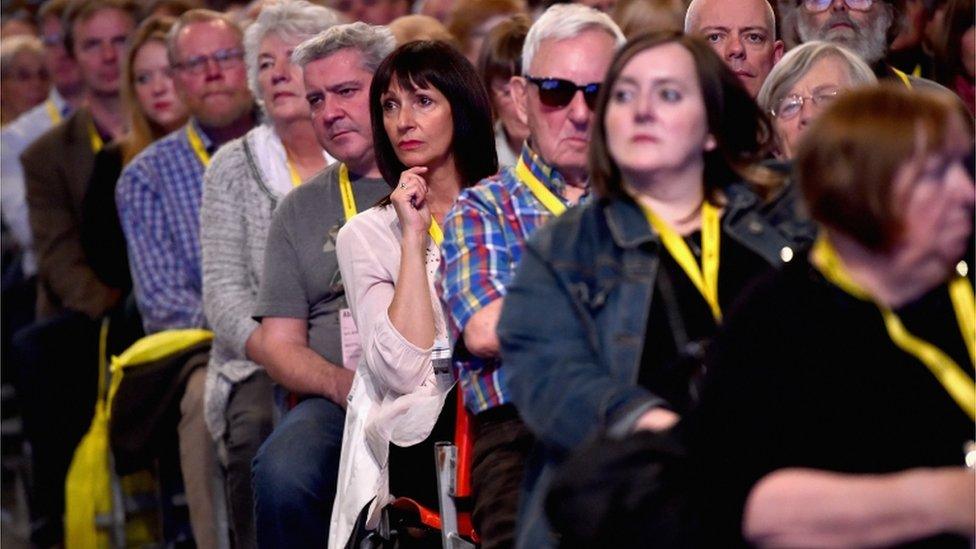
All five Holyrood parties have set dates for their spring conferences - their last before the election.
Liberal Democrats - Assembly Rooms, Edinburgh, Friday 26 and Saturday 27 February
Conservatives - Murrayfield, Edinburgh, Friday 4 March
Greens - Dynamic Earth, Edinburgh, Saturday 5 and Sunday 6 March
SNP - SECC, Glasgow, Saturday 12 and Sunday 13 March
Labour - Science Centre, Glasgow, Saturday 19 March

Legislation
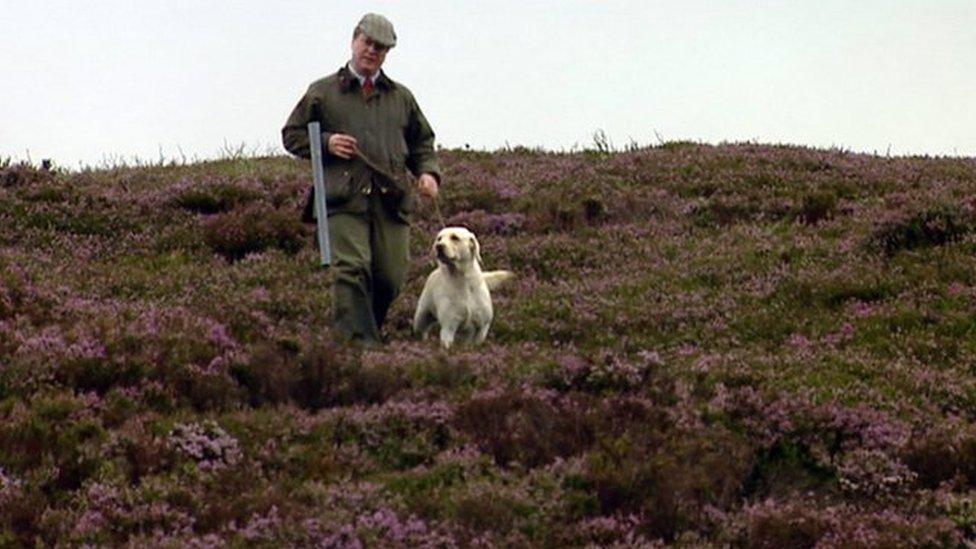
Here are details of the law-making plans Holyrood is trying to work through, external before the election.
There are bills to reform higher education governance, private housing tenancies and cremation and burial following the baby ashes scandal.
But perhaps the most controversial legislation is the Land Reform Bill, which is being extended in scope.
This follows criticism by a Holyrood committee and an SNP conference vote demanding more radical legislation.
The bill is receiving detailed scrutiny in committee during February before a final vote by all MSPs in March.

Trident
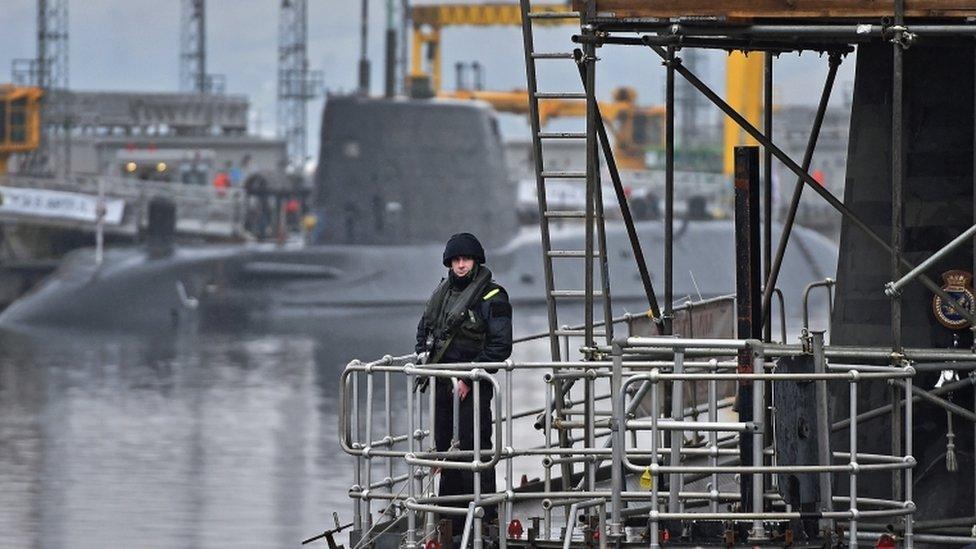
The UK parliament's "maingate" decision on renewing the Trident nuclear weapons system is due this year.
On his recent visit to Faslane, Defence Secretary Michael Fallon said he hoped the vote would take place "shortly". , external
That could well mean before the Holyrood election, although there has been speculation that a vote closer to Labour's UK conference in the autumn is preferred by some ministers, to maximise the impact of division within the Labour Party.

Dissolution
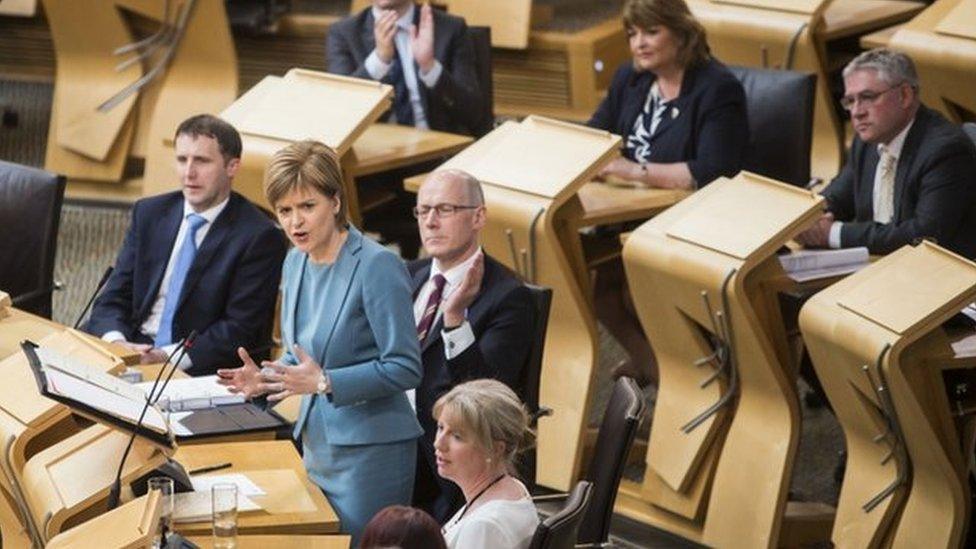
Wednesday 23 March will be Holyrood's last business day before the election. Dissolution takes effect at midnight - as the 23rd becomes the 24th.
Ministers remain ministers. MSPs cease to be MSPs. The election campaign begins.

Independence Day
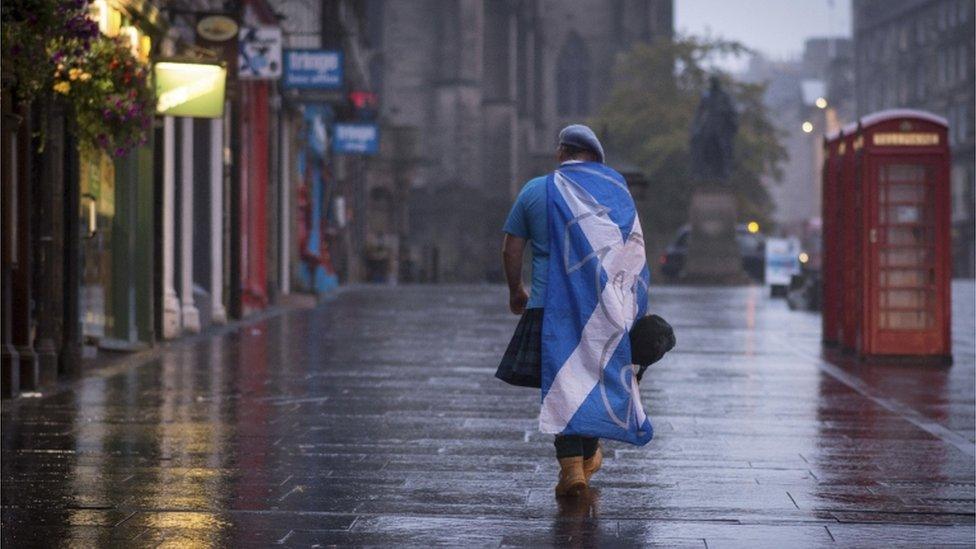
Thursday 24 March - this was the Scottish government's proposed date for Scotland to become an independent country, if there was a 'Yes' vote in the referendum and will no doubt provide opportunity for those on both sides of the debate to reflect on what might have been.

New Tax Powers
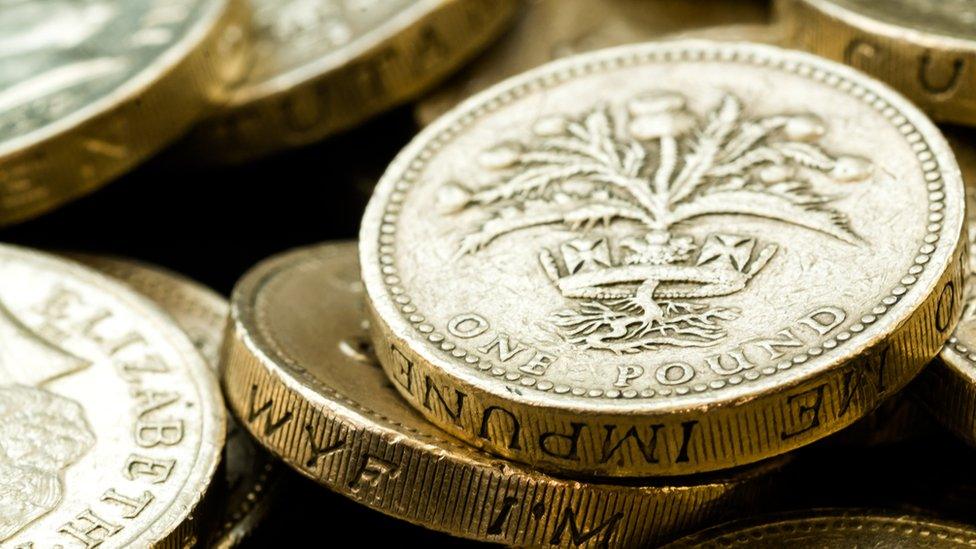
The new Scottish rate of income tax will take effect on Wednesday 6 April. There's a good explainer here., external
But as noted above in the budget section, in 2016/17 the Scottish government will use its new powers to keep income tax the same as the rest of the UK.

Election 2016
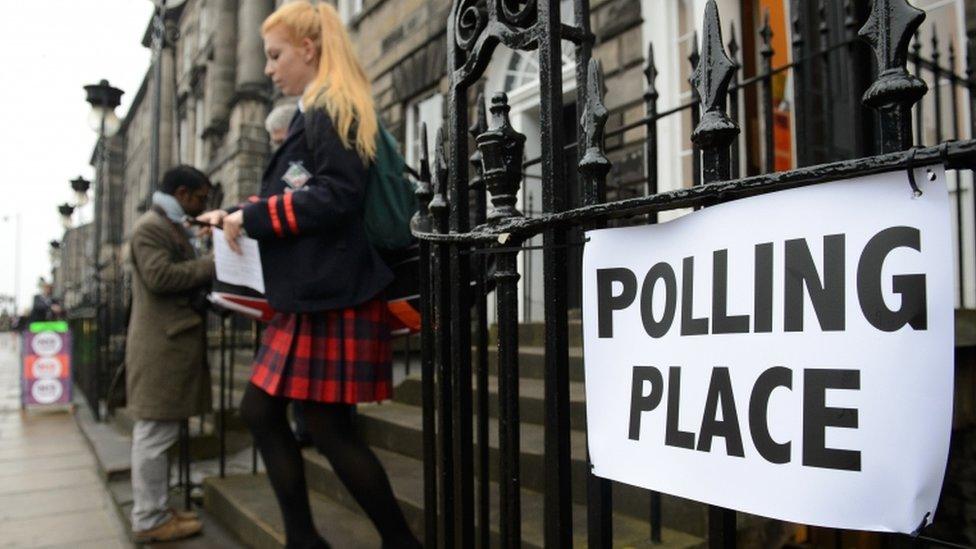
Polling in the fifth Scottish Parliament elections will take place between 07:00 and 22:00 on Thursday 5 May, with 73 constituencies and 56 seats on the eight regional lists up for grabs.
The next term at Holyrood will run for five years to 2021 to avoid a clash with the 2020 UK general election.
Opinion polls (winter 2015/16) suggest the SNP is on course for another landslide, with Labour in danger of losing many (perhaps all) of its constituency seats.
As Professor John Curtice notes in his most recent analysis, a small Conservative revival may also be a feature, external.
The Holyrood vote takes place on the same day as elections to the assemblies in London, Wales and Northern Ireland and parts of local government in England. Londoners are also choosing a new mayor.
This will be the first major electoral test for Labour, external under the leadership of Jeremy Corbyn.

Holyrood Returns
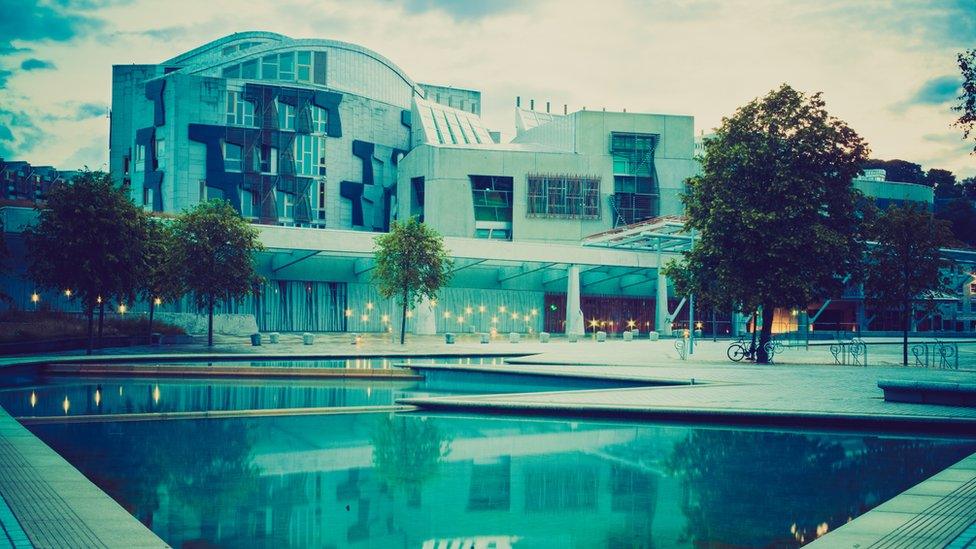
Holyrood usually returns the week after the election for MSPs to be sworn in.
Normally, the nomination of the first minister takes place the following week.

Royal Opening
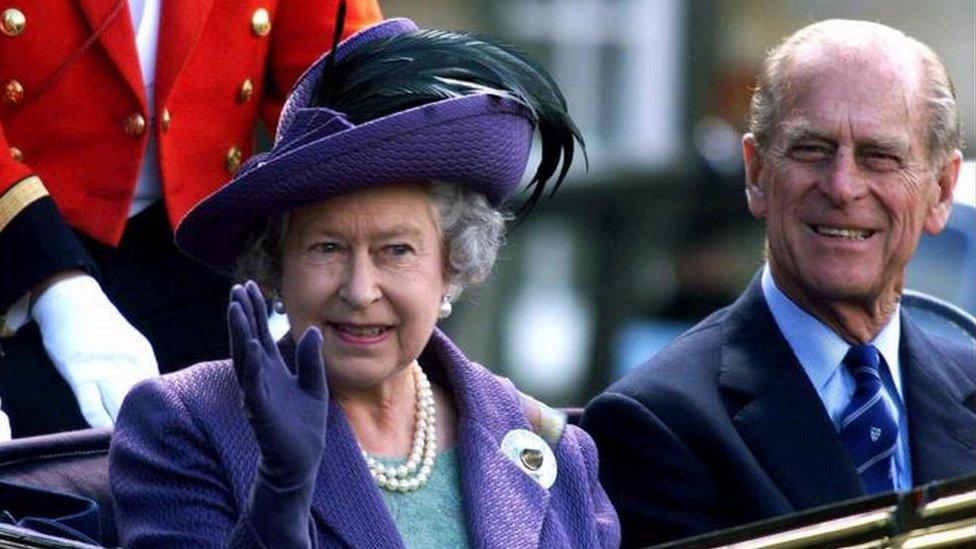
It has become a tradition for the Queen to formally open each new session of parliament after an election.
No announcements have been made but last time this took place on 1 July before parliament rose for the summer recess.
- Published27 January 2016
